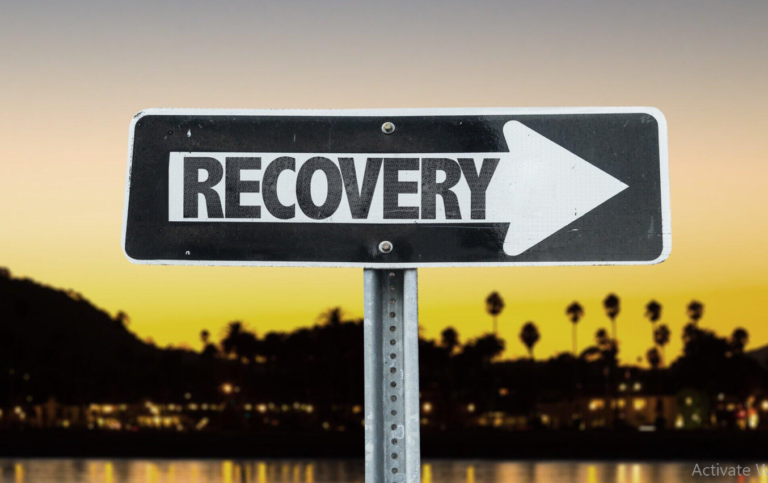Starting your recovery journey can feel overwhelming, but you are not alone. This guide offers simple steps to help you understand addiction treatment. From setting goals to building a support system, each step brings you closer to a healthier life.
We’ll explore treatment options, therapy tools, and ways to prevent relapse. Recovery isn’t just about breaking free from addiction-it’s about building a new, positive life.
By following these steps, you’ll find hope, strength, and confidence along the way. Let’s take the first step together.
Understand the Recovery Process
The recovery process begins when you make the choice to seek help. Admitting you have a problem is not easy, but it’s a brave choice that opens the door to change. It involves physical, mental, and emotional changes to create a stable, addiction-free life. Understanding this journey can empower you to stay committed.
Recovery may feel challenging, but it’s important to know that it is possible. Many people have taken this path and successfully built fulfilling lives afterward. Believing in yourself and having a clear plan is key.
Set Realistic Goals
Setting goals gives you direction and motivation during recovery. These goals might include improving your health, building relationships, or achieving personal milestones. Start small to build confidence and then move toward bigger goals.
Your goals should be specific and achievable. This can help you track your progress and celebrate small victories along the way. Remember, each step forward is a win.
Explore Treatment Options
Choosing the right treatment option is an important first step in your recovery. Options might include inpatient, outpatient, or medication-assisted treatment. It’s essential to explore each to find the best fit for you.
Each treatment option has unique benefits and challenges. Talking with healthcare professionals can guide you in making an informed choice. The right treatment sets a strong foundation for a successful recovery.
Engage with Therapy Techniques
Therapy is a central part of recovery that helps you understand the root causes of addiction. Techniques like cognitive-behavioral therapy (CBT) and mindfulness help you manage thoughts and feelings. Therapy provides tools for dealing with triggers in healthier ways.
Consistent therapy can improve self-awareness and build resilience. It allows you to confront challenges in a supportive environment. Engaging fully with therapy opens the door to deep, lasting change.
Build Coping Strategies for Everyday Life
Recovery includes learning new ways to cope with everyday stressors. Coping strategies might include mindfulness practices, exercise, or creative outlets like journaling or art. These methods help keep you focused and calm, reducing the likelihood of relapse.
Finding what works for you takes time and patience, as not all strategies work for everyone. However, building strong coping habits will make each day a bit easier and keep you on a stable path.
Seek Support from Loved Ones
Recovery is not something you need to face alone; leaning on friends and family can make a huge difference. A support network provides emotional help and motivation, reminding you that you are not isolated in this journey. Loved ones can be there for encouragement, listening, and celebrating small victories.
Letting people in and sharing your progress helps them understand what you’re going through. This support not only aids your recovery but can strengthen relationships as they walk beside you.
Find Personalized Care
Every recovery journey is unique, so personalized care is essential. Treatment plans that consider your specific needs increase the chance of success. This might include customizing therapies or adjusting schedules for flexibility.
Personalized care addresses the issues that matter most to you. It allows you to move at a pace that feels comfortable. Tailoring treatment to your life makes recovery a sustainable process.
Work with Suboxone Doctors When Needed
For some, medication can be a helpful part of recovery, especially in the early stages. Suboxone doctors specialize in medications that reduce cravings and ease withdrawal. This option can provide a stable base to begin making life changes.
Medication is often used alongside therapy for comprehensive support. Suboxone doctors can monitor your progress and adjust treatment as needed. Medication-assisted treatment can be a valuable tool in your journey to wellness.
Commit to a Relapse Prevention Plan
Relapse prevention is an essential part of long-term recovery. Developing a solid plan helps you recognize early signs of relapse and equips you with tools to stay on track. This plan may include attending support groups, maintaining a healthy routine, and regularly checking in with your therapist.
Building a relapse prevention plan requires an honest look at your personal triggers and weaknesses. With this plan in place, you can confidently face challenges and avoid setbacks.
Engage in Healthy Lifestyle Choices
Keeping a healthy lifestyle helps both your body and mind as you recover. Simple habits like regular exercise, eating nutritious food, and getting enough sleep can lift your mood and boost your energy. These routines support your recovery and help you feel more balanced and steady overall.
A healthy lifestyle can also help you cope with stress naturally. Choosing these healthy habits makes it easier to handle daily pressures and stay in control.
Track Your Progress
Keeping track of your progress reminds you of how far you’ve come. Whether it’s a journal, app, or a support group, documenting your achievements is motivating. Reviewing your journey can encourage you during tough times.
Regular progress checks help you set new goals. You may find areas to improve, which makes recovery a continuous learning process. Celebrating each milestone builds your self-esteem.
Look Toward a Bright Future
As you advance in recovery, you’ll notice improvements in your health, mood, and relationships. Recovery opens doors to opportunities you may have missed before. Focusing on the future helps you stay motivated.
A positive outlook gives you something to look forward to each day. Staying hopeful about what’s ahead can make difficult moments feel more manageable. Recovery isn’t just about quitting a habit; it’s about creating a better life.
Moving Forward with Strength in Your Recovery Journey
Your recovery journey is an important process. Each step you take brings you closer to a better life. It may be hard at times, but with the right support and tools, you can succeed.
Remember to celebrate your progress, no matter how small. Stay focused on your goals and keep using healthy coping strategies. With patience and determination, you can build a brighter future for yourself. You are stronger than you think.
For more helpful blog posts and advice on a range of topics, head to the blog now.





